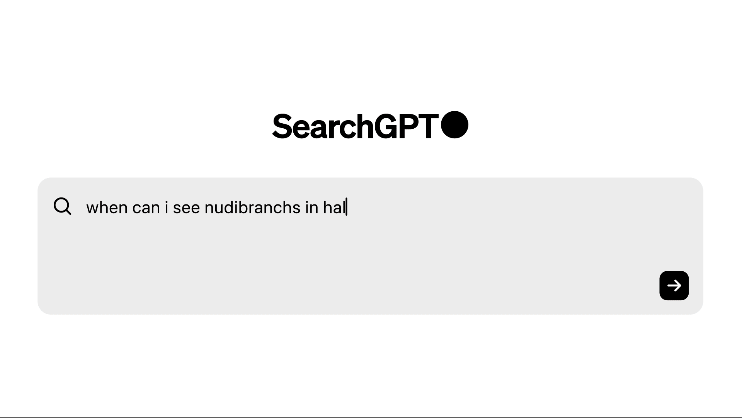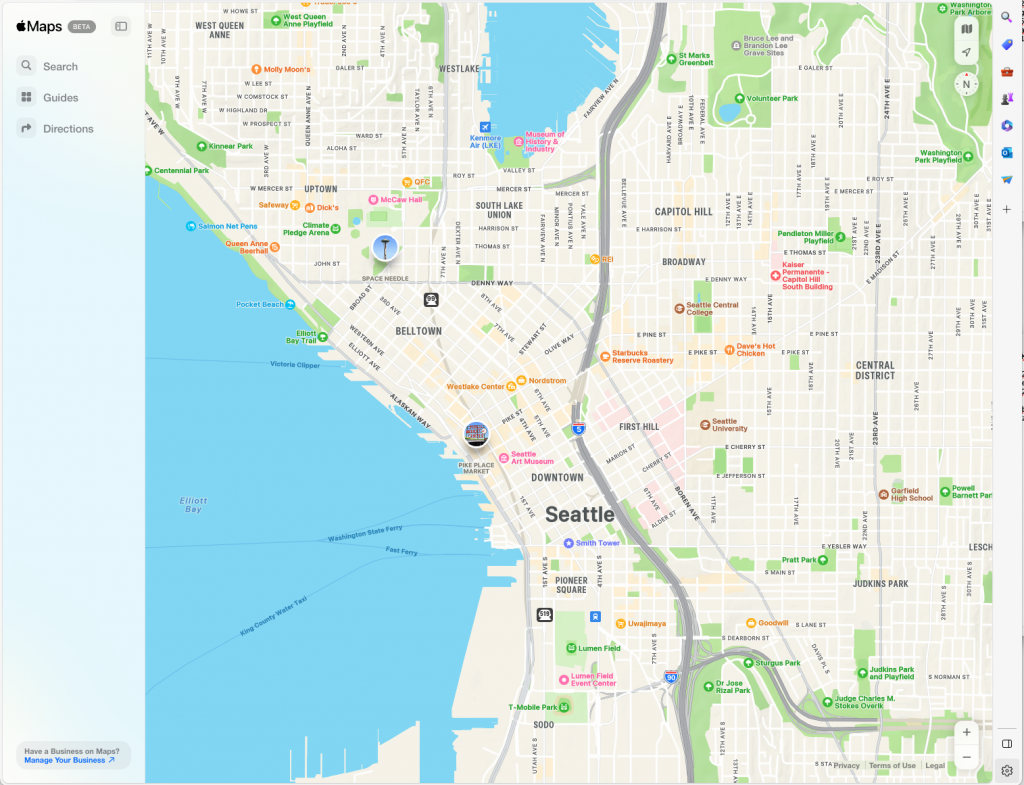Greetings, everybody. We hope you’re staying cool out there. Earth’s hottest day on record was Monday (edging out the previous all-time high that was established on Sunday), but this newsletter isn’t taking some kind of global warming stance. A Belgian tourist in Death Valley made the regrettable decision to flick a flip flop off his foot and the sand liquefied his skin. The news story freaked us out and now our entire staff keeps an extra pair of socks in our pockets at all times.
Most of us steer clear of things that inspire dread. Google doesn’t enjoy that luxury. OpenAI announced SearchGPT on Wednesday. Wired’s calling it “OpenAI’s Direct Assault on Google.” Yahoo Finance is a bit more diplomatic, but still says this is a “challenge to Google’s search dominance.” Alphabet’s stock price fell after OpenAI’s press release triggered a headline from every media outlet in existence.
Developing a search engine is the obvious move for OpenAI. The folks there will probably never admit this because ChatGPT got so popular, but we’d bet that it was never intended to be their flagship commercial enterprise. Launching a search engine was probably the primary thing the workers there thought they’d be known for, say, five years ago (despite their repeated statements about ushering in a future with a world-conquering AGI that will make human work obsolete and lay the foundation for a universal life of luxury).
What’s interesting is the fact that SearchGPT basically already exists on bing.com. The executives at Google famously freaked out when ChatGPT launched and got integrated into Microsoft’s search. The big quote from Satya Nadella, Microsoft’s CEO, was that he wanted to make Google come out and dance.
Google did in fact come out and dance. It was the worst dance of all time. Everyone lost. Microsoft dumped a pile of money into its search engine and didn’t gain much market share and Google’s panicked reaction was to start destroying its own search product. In Google’s defense, this newsletter also got swept up in the hype and suggested that all of you familiarize yourselves with Bing’s ecosystem. In our defense, that recommendation did not have a money-printing monopoly at stake.
A rebranding to SearchGPT from bing.com may actually work. Microsoft’s consumer-facing, internet-related projects are cursed in the minds of nearly everyone. How many of you are using the Edge browser? It’s better than Chrome in every measurable way, but it’s haunted by the ghost of Internet Explorer. Bing has been a punchline for so long that there’s probably nothing it could’ve done to challenge Google. We’re torn about whether or not to suggest getting to know the ins and outs of a non-Google search engine again. It could be a big help for your clients if SearchGPT takes off, but.. it might not take off. Decide for yourselves.
On the Local Viking/Local Brand Manager front, we just added category filtering to GeoBooster. For the foolish ones of you who never adopted GeoBooster (a stunningly effective piece of software that exceeds the high hopes we had for its ranking-improvement abilities), categories are typically tied to service areas or services for the businesses using it. The job site check-ins the app facilitates get posted to the corresponding page on any given company’s website, i.e. a check-in categorized as “ac repair” would show up on the /ac-repair page of that company’s website. Category filtering gives you a quick way to correlate ranking improvements with user activity.
Let’s wrap this up. Our first closing link comes from Buffer. It’s a story about the way a Vinat co-founder used press releases to market her business on the cheap. Vinat is a wine-buying app. Next, from Search Engine Journal, A Guide To Keyword Prioritization & The Newest Query Matching Controls In Google Ads. Our third link comes from Wired. It’s called This Machine Exposes Privacy Violation. An ex-Google employee built a search engine called webXray that finds illegal online data tracking. Tim Libert, its founder, hopes to become “the Henry Ford of tech lawsuits.” We’re all for it.
Our final link needs its own paragraph. An Apple Maps beta website just went live at beta.maps.apple.com. For those of you who are unaware, Apple Maps is excellent at navigation. We’d argue that it’s better than Google Maps if your goal is to get from Point A to Point B. It falls far short of Google Maps if you’re looking for information about businesses. All of us know the Google Maps ecosystem. We pay our bills through it. It has reviews and pictures and is generally great for getting information about any given business. That’s what Apple Maps, which was only available as an iPhone app until the recent past, is bad at. It has a Yelp integration (that everyone hates because Yelp sucks), but it otherwise has a meager amount of information about the places you can look up. In order to horn in on the Google Maps revenue stream, Apple needs to make a widely-accessible website like the one we linked to. Our guess is that it is gunning for local search money and we further predict it’ll succeed. The degree of its success remains to be seen. We’ll include information about that ecosystem next week and what you can do to set your clients up in Apple Maps.
Until then, be safe out there. We’ll see you again in August.



